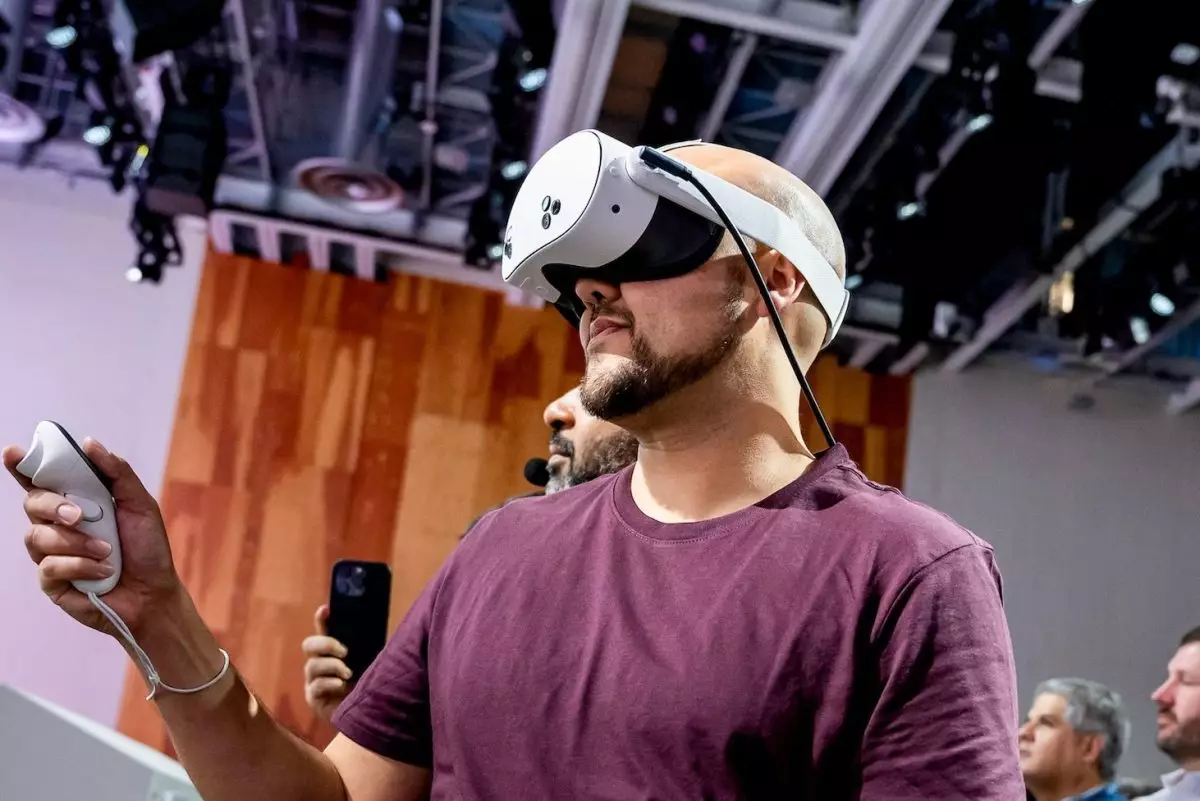In an age where technology intertwines seamlessly with our daily routines, the education sector is undergoing a significant transformation driven by virtual reality (VR). Meta, the parent company of Facebook, has embraced this shift through a strategic partnership with universities across the U.S. and U.K. As part of its ongoing initiative for enhancing educational experiences, Meta has launched the “Meta for Education” beta program aimed at integrating immersive learning into academic institutions. This ambitious project holds the promise of revolutionizing how students interact with educational content, yet it raises questions about the efficacy and practicality of such technology in traditional learning environments.
The Meta for Education beta program will engage 13 prominent universities including Arizona State University, Imperial College London, and others, allowing them exclusive access to early versions of new VR products. This partnership is an attempt to gather feedback and refine educational tools designed for various disciplines, such as science, history, and the arts. Meta’s commitment to making quality educational resources more accessible through innovative technology suggests a proactive approach toward addressing the gaps in current educational methodologies.
However, while engaging educational institutions is a crucial step, the challenge lies in ensuring that instructors are adequately trained to utilize these VR tools effectively. Without effective training and integration support, even the most advanced technologies can fall short of transforming educational practices. It remains to be seen if Meta can adequately equip educators to leverage VR meaningfully in the classroom environment.
Meta’s initiative also extends to its “digital twin” metaversity program, which aims to create virtual environments closely mirroring actual university campuses. This effort reflects an understanding of the increasing demand for experiential learning opportunities among students, particularly in fields like performance arts and physiotherapy. However, implementing such programs necessitates a careful balance of technology and pedagogical strategies to enhance student engagement and retention.
While immersive classrooms are currently in development, their effectiveness needs rigorous assessment. How do students respond to virtual versus traditional learning environments? Will VR enhance comprehension of complex subjects, or could it be merely a gimmick? Evaluating the outcomes of these immersive experiences requires comprehensive research and feedback from both students and educators.
Amid these developments, it’s crucial to note the financial implications of Meta’s ventures into the VR landscape. Despite a promising increase in revenue, the Reality Labs division reported a staggering loss that raises concerns about the long-term sustainability of such initiatives. The company’s consistent investment into VR development, despite mounting expenses, indicates a relentless pursuit of dominance in the virtual space.
With competitors like Apple stepping into the VR arena with their Vision Pro headset, the pressure mounts on Meta to deliver products that can effectively attract and retain users. The entry of major players into the immersive technology market may redefine standards, compelling Meta to innovate continuously and differentiate its offerings significantly.
The future of VR in education hinges not just on technology but also on the broader acceptance of innovative learning modalities by institutions and learners alike. As Meta rolls out this beta program, it holds the potential to impact educational practices profoundly. That said, the hurdles they face—be it in terms of technology integration, pedagogy, or financial viability—must not be understated.
Engaging higher education institutions is a promising strategy, but expanding this engagement to younger populations might be critical for the widespread adoption of virtual learning tools. A successful rollout might redefine learning paradigms, paving the way for more innovative teaching methods that prioritize engagement, interactivity, and practicality.
Meta’s foray into the VR education sector represents an exciting chapter in the evolution of learning toolsets. While the company’s initiative is ambitious, with the potential to reshape education fundamentally, the success of this endeavor will depend on multiple factors, including user experience, educator readiness, and financial sustainability. Only through careful implementation and responsiveness to feedback can Meta pave a meaningful way forward in the realm of virtual education. The next few years will be crucial in determining if VR can transition from a cutting-edge novelty to a cornerstone of modern pedagogy.

